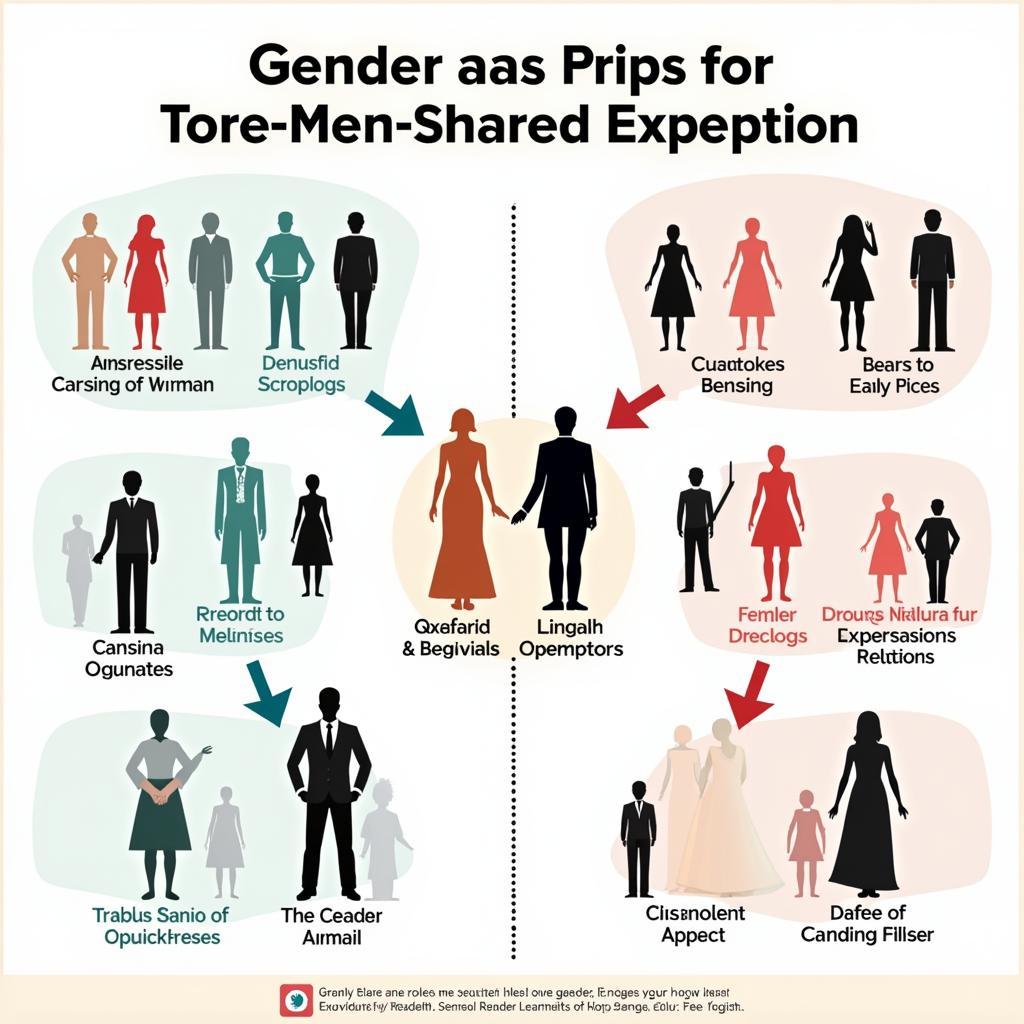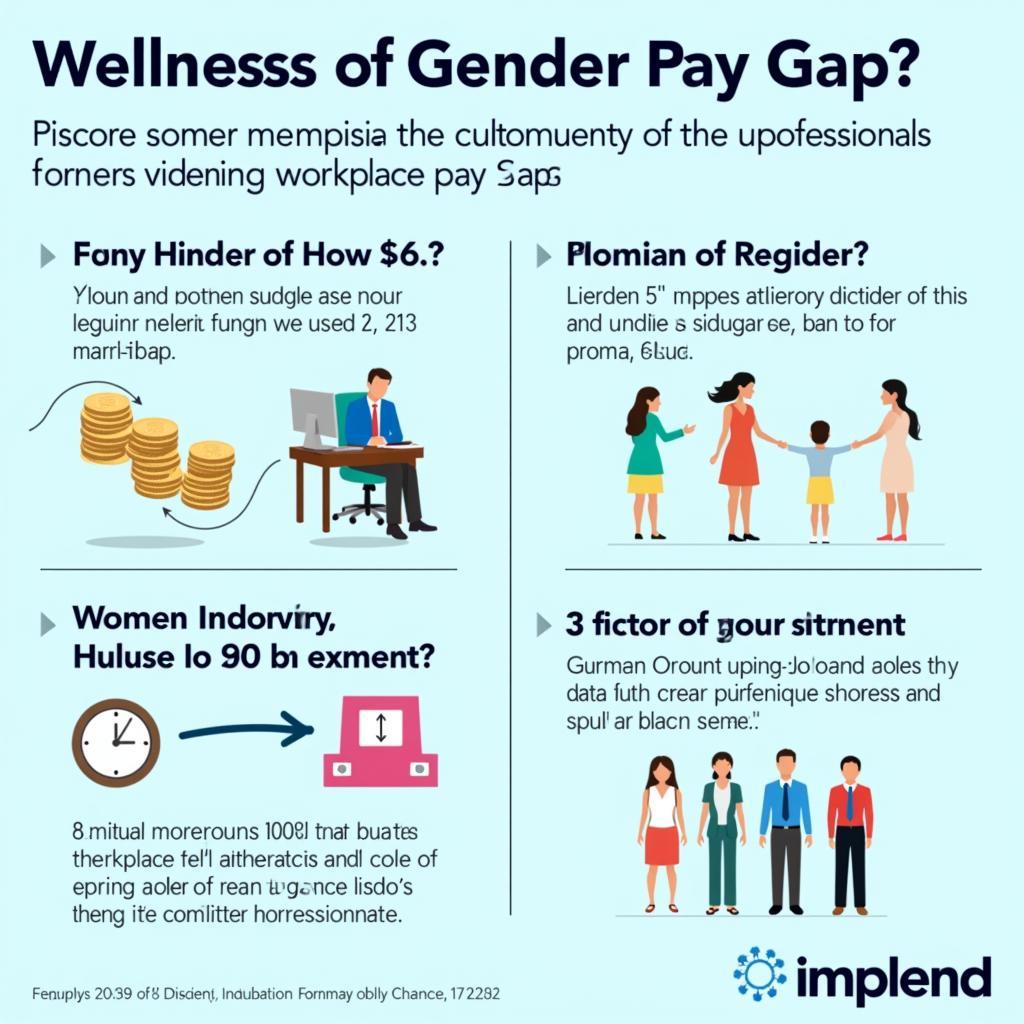The Gendered Society By Michael S. Kimmel explores how gender is socially constructed and influences our lives. Kimmel argues that gender isn’t simply about biological differences between men and women but a system of power relationships that shapes our identities, behaviors, and opportunities. This article delves into Kimmel’s key arguments, exploring the complexities of gender and its impact on society.
Deconstructing “The Gendered Society”: Kimmel’s Core Arguments
Kimmel’s work is foundational in gender studies. He argues that masculinity and femininity are not inherent traits but are learned and performed. He challenges the notion of a singular, dominant masculinity, instead highlighting the multiple masculinities that exist across different cultures and social groups. Kimmel emphasizes how the pursuit of this idealized masculinity often leads to harmful behaviors, including violence and aggression. He also highlights the ways in which women are disadvantaged in a patriarchal society, experiencing limited opportunities and facing systemic discrimination. A core aspect of Kimmel’s work is the understanding that gender inequality isn’t just a “women’s issue.” He emphasizes that men also suffer under the constraints of rigid gender roles, often feeling pressured to conform to societal expectations of masculinity.
One of Kimmel’s most compelling arguments is that gender inequality is a relational issue. He posits that understanding masculinity requires understanding femininity and vice-versa. This interconnectedness is crucial to dismantling the system of gender inequality that impacts everyone. He challenges readers to recognize the ways in which they participate in and perpetuate gendered norms, even unintentionally.
 Gender Roles as Social Constructs
Gender Roles as Social Constructs
The Impact of Gender on Social Interactions and Institutions
Kimmel examines how gender shapes various aspects of our lives, from personal relationships to professional settings. He illustrates how gendered expectations influence our interactions with others, creating power imbalances and reinforcing stereotypes. In the workplace, these inequalities manifest in pay gaps, limited opportunities for advancement, and workplace harassment. In families, traditional gender roles can lead to unequal divisions of labor and limit individual potential.
Understanding how gender intersects with other social categories, such as race, class, and sexuality, is crucial, as Kimmel emphasizes. These intersections create unique experiences and challenges for individuals navigating a gendered society. He underscores the importance of intersectionality in creating a more inclusive and equitable world. Kimmel’s analysis of gender also extends to institutions like education, media, and politics, showing how these systems perpetuate and reinforce gendered norms.
 Gender Inequality in the Workplace
Gender Inequality in the Workplace
Challenging Gender Stereotypes and Promoting Equality
Kimmel’s work provides valuable insights into the complex nature of gender and its pervasive influence on society. His research challenges us to question traditional gender roles and expectations. He encourages critical thinking about how these norms impact our lives and the lives of others.
What practical steps can we take to dismantle these harmful systems? Kimmel suggests promoting open dialogue about gender, challenging stereotypes, and advocating for policies that promote gender equality. By understanding how gender operates in our lives, we can work towards creating a more just and equitable world for all.
Dr. Sarah Thompson, a prominent sociologist specializing in gender studies, adds, “Kimmel’s work is essential for understanding how gender shapes our world. His focus on the social construction of gender provides a powerful framework for challenging inequality and promoting social change.”
 Challenging Gender Stereotypes Through Education
Challenging Gender Stereotypes Through Education
Conclusion: Moving Towards a More Equitable Future
The gendered society by Michael S. Kimmel offers a crucial lens through which to examine the pervasive influence of gender on our lives. By understanding how gender is socially constructed and how it intersects with other social categories, we can begin to challenge the systems that perpetuate inequality. Kimmel’s work encourages us to envision and work towards a more just and equitable future where everyone has the opportunity to reach their full potential, regardless of gender.
FAQ
- What is the main argument of “The Gendered Society”? Kimmel argues that gender is a social construct, not a biological imperative, and it shapes our lives in profound ways.
- How does Kimmel define masculinity? Kimmel challenges the idea of a single masculinity, proposing instead the existence of multiple masculinities shaped by social and cultural contexts.
- Why is understanding gender important? Understanding gender is crucial for addressing inequality and creating a more just and equitable society.
- What is the concept of hegemonic masculinity? Hegemonic masculinity refers to the dominant and idealized form of masculinity in a given society, often associated with power and dominance.
- How does Kimmel’s work relate to intersectionality? Kimmel’s work acknowledges the interconnectedness of gender with other social identities like race, class, and sexuality, highlighting how these intersections shape individual experiences.
- What is the significance of gender as a relational concept? Kimmel emphasizes that masculinity and femininity are defined in relation to each other, meaning we cannot understand one without understanding the other.
- How can we challenge gender stereotypes? Challenging gender stereotypes requires conscious effort, including questioning traditional roles, promoting open dialogue, and advocating for equal opportunities.
For further support, please contact Phone Number: 02043854663, Email: societyforpeace@gmail.com Or visit us at: Khu 34, Bac Giang, 260000, Vietnam. We have a 24/7 customer support team.
 using WordPress and
using WordPress and